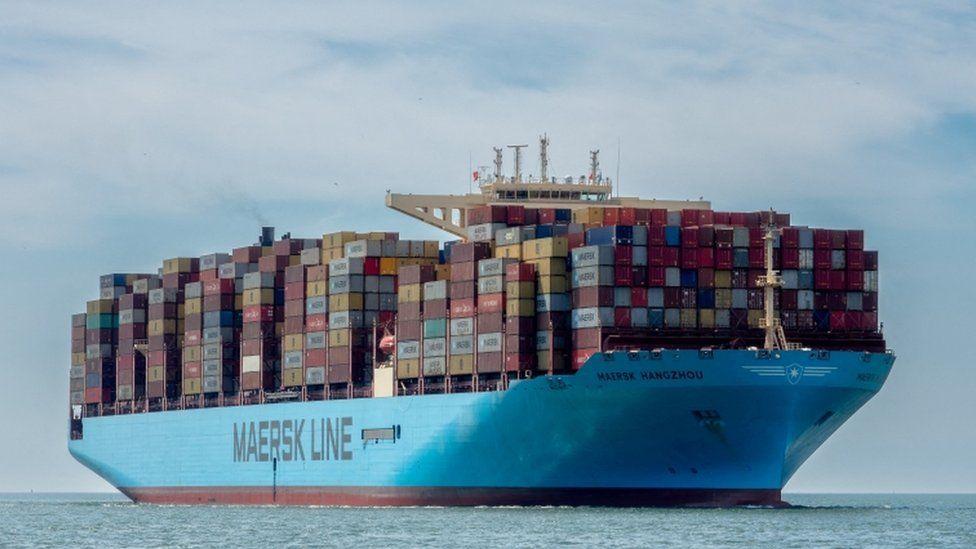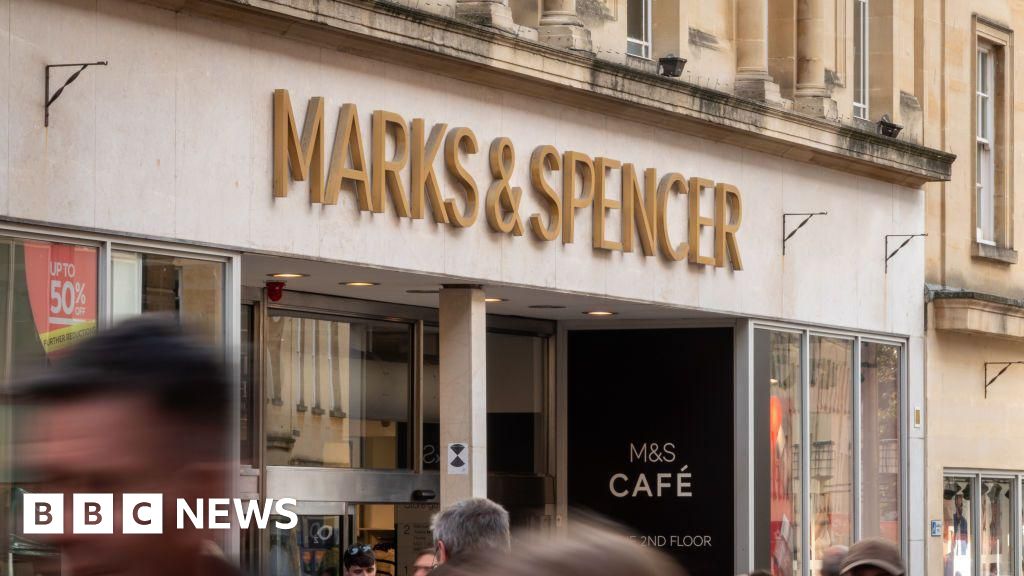ARTICLE AD BOX
 Image source, Reuters
Image source, Reuters
Houthi rebels hit the Maersk Hangzhou, seen here in 2018, with a missile in the Red Sea in December
By Jonathan Josephs & Faisal Islam
Business reporter & Economics editor
The government is concerned ongoing attacks on shipping in the Red Sea could further shrink the UK economy.
The BBC understands the Treasury has modelled scenarios including crude oil prices rising to more than $10 a barrel and a 25% increase in natural gas.
On Thursday night, the UK launched airstrikes against the Houthi rebels.
The government fears if the disruption to cargo traffic spreads to tanker traffic another energy shock is possible.
It comes as the boss of shipping giant Maersk said the "significant disruption" to global trade was already being felt "down to the end consumer". Vincent Clerc called for a "stronger mobilisation" to repel the attacks, which he said would lead to higher prices for customers.
Currently, about a quarter of the world's shipping containers are being diverted from the area.
Roughly 12% of global shipping trade usually takes the more direct route through the Red Sea and Suez Canal but currently traffic is having to take the longer route around Africa's Cape of Good Hope.
Tesco boss Ken Murphy said the disruption "could inflate the cost of some items but we just don't know at the minute". Next, Ikea and Danone are amongst the big names who say they are expecting delays in receiving goods.
Maersk boss Vincent Clerc says consumers will see higher prices because of the Red Sea attacks
The Red Sea is "one of the most important arteries of global trade" Mr Clerc told the BBC. Even if it is opened up quickly again it will "probably take a few months more" to get back to normal, he added.
For the shipping industry there is currently no alternative: "We don't really see another solution right now than to sail south of the Cape of Good Hope," he said.
Making the Red Sea safe again will require a better understanding of the threat says the Maersk CEO.
He explained that when one of his company's ships, the Maersk Hangzhou, was attacked it was outside the perceived danger zone and was targeted with different weapons to previous attacks.
"The level of threat is actually evolving", he said.
The Houthis military capabilities and the political difficulties of interventions are making it difficult for the military coalition to end the threat to global trade.
Iranian-backed Houthi rebels in Yemen said the attacks are in sympathy with Palestinian suffering in Gaza and the group's leader Abdel-Malek al-Houthi said on Thursday that they "will not back down".
Commercial shipping has been targeted at least 27 times since mid-November, according to the US military.
Image source, PA Media
Image caption,The UK's HMS Diamond is amongst a coalition of western warships trying to stop Houthi rebels attacking commercial shipping in the Red Sea
As a result Maersk and several of the world's other major shipping lines have been avoiding a key route for global trade as they prioritise the safety of their crews.
"We have ships that are being shot at. We have colleagues whose lives are at risk when this happens and we can simply not justify sailing through these danger zones, the way the situation is right now", Mr Clerc said.
The Maerks boss explained the longer route around Africa was sucking capacity out of the global shipping system in the short term, adding anything from 7 days to two weeks to a ship's journey, as well as costing $1m more in fuel alone.
"It will be more costly, it will be slower, but it can be coped with in the long run...Shipping prices have gone up as a result, because of an anticipation of congestion and fear of lacking capacity in the short run," Mr Clerc added.
Rates for moving cargo by sea reached record highs during the pandemic but, along with their shipping companies profits have fallen significantly over the last 18 months or so.
However, the industry has spare capacity partly because the higher cost of living in much of Europe and the United States over the last two years has led to a fall in consumer demand.
In Bahrain on a tour of the Middle East this week US Secretary of State Antony Blinken expressed why politicians are concerned about the attacks on global shipping
The extra costs get "translated into higher prices for people, for everything from fuel to medicine to food".
"And so it's having a real impact on people around the world in their daily lives."
Image source, Reuters
Image caption,US Secretary of State Antony Blinken spoke of the threat to the global economy after meeting Bahrain"s King Hamad this week
MSC, Maersk, CMA-CGM and Hapag-Lloyd are amongst the biggest shipping lines to have increased their rates.
Those costs are already being passed to consumers in the form of higher prices "which in these times of inflation is really something that we need to try to avoid," Mr Clerc told the BBC.
"The magnitude and the impact that it will have will heavily depend on the length of the crisis, the length during which the trading route is disrupted."
"A lot of our infrastructure and our economy relies on the services that we provide and the traffic we have in this region. We need to see this restored, we need to see safety restored as fast as possible."

 1 year ago
56
1 year ago
56








 English (US) ·
English (US) ·